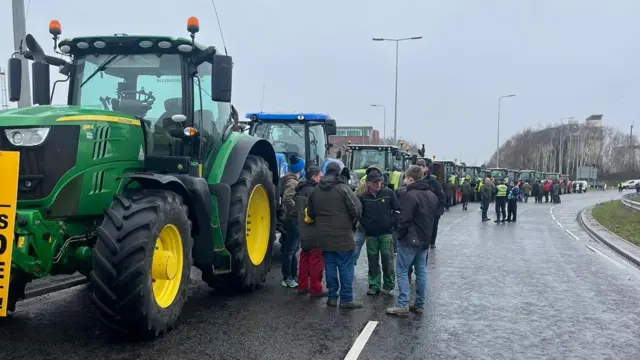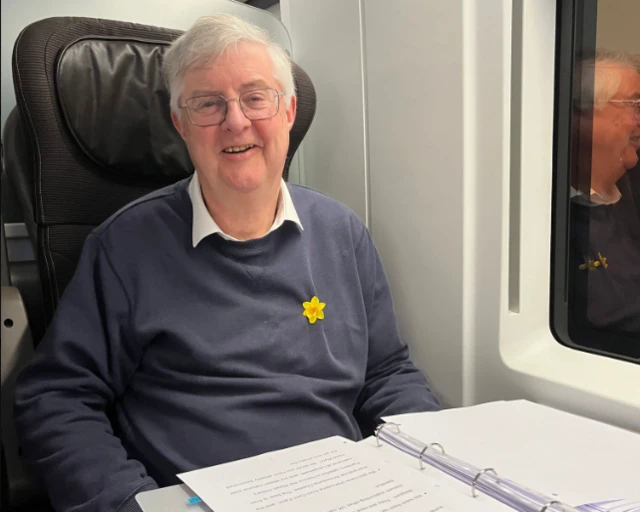Are farmers in England protesting?published at 12:11 GMT 28 February 2024
This morning, Tom Bradshaw, the new national president of the National Farmers' Union of England and Wales, was on BBC's Today programme explaining the feeling among farmers.
"I really don't feel at the moment in England that we are at breaking point."
But, he added: "We've got an incredibly febrile atmosphere. We have seen exactly what's happened across Europe with many protests."
He explained the main issue for English farmers at the moment is "fairness in the supply chain and the fact that the market has been undercut by imports", rather than the subsidy row as is the case in Wales.
Bradshaw criticised the new Welsh farming policies, saying they are "going to have a really damaging impact on the way farming in Wales will be able to carry on and it will have huge impacts for next generations".





